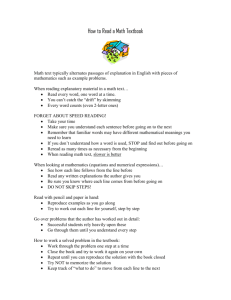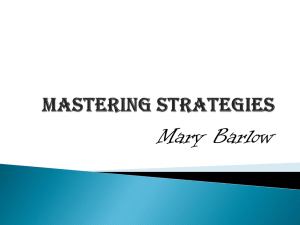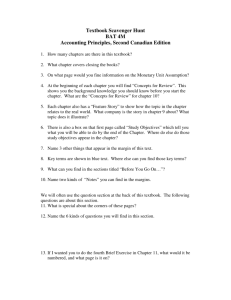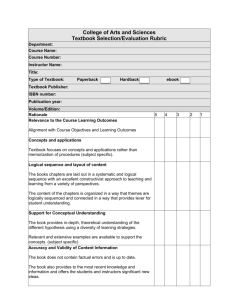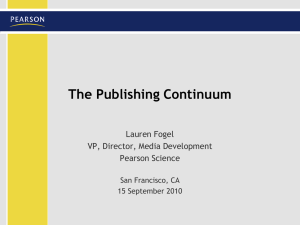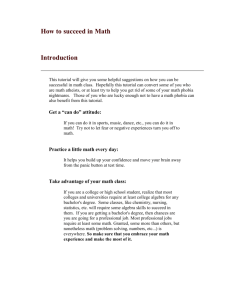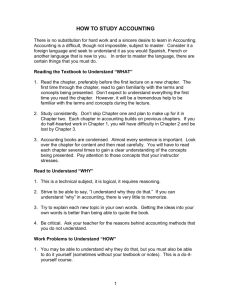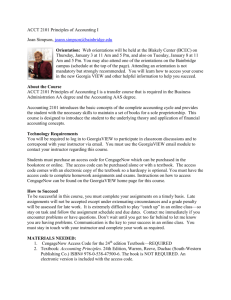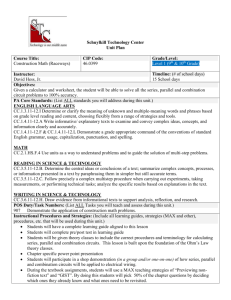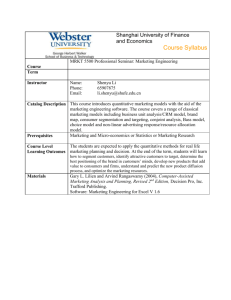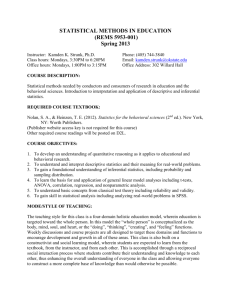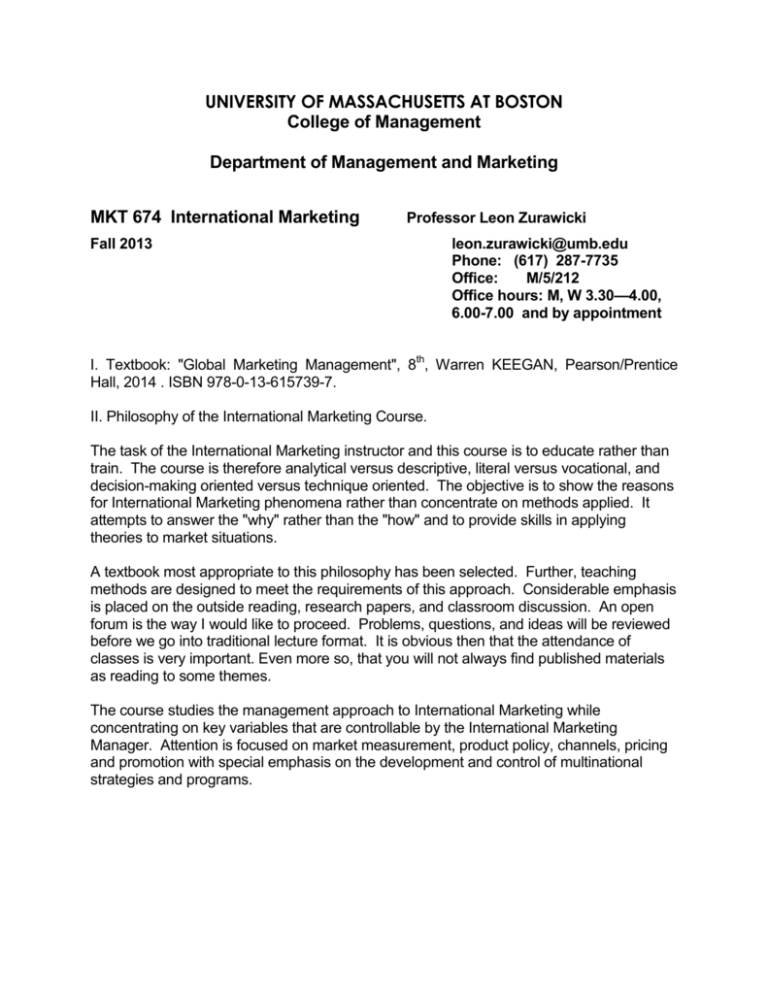
UNIVERSITY OF MASSACHUSETTS AT BOSTON
College of Management
Department of Management and Marketing
MKT 674 International Marketing
Professor Leon Zurawicki
Fall 2013
leon.zurawicki@umb.edu
Phone: (617) 287-7735
Office:
M/5/212
Office hours: M, W 3.30—4.00,
6.00-7.00 and by appointment
I. Textbook: "Global Marketing Management", 8th, Warren KEEGAN, Pearson/Prentice
Hall, 2014 . ISBN 978-0-13-615739-7.
II. Philosophy of the International Marketing Course.
The task of the International Marketing instructor and this course is to educate rather than
train. The course is therefore analytical versus descriptive, literal versus vocational, and
decision-making oriented versus technique oriented. The objective is to show the reasons
for International Marketing phenomena rather than concentrate on methods applied. It
attempts to answer the "why" rather than the "how" and to provide skills in applying
theories to market situations.
A textbook most appropriate to this philosophy has been selected. Further, teaching
methods are designed to meet the requirements of this approach. Considerable emphasis
is placed on the outside reading, research papers, and classroom discussion. An open
forum is the way I would like to proceed. Problems, questions, and ideas will be reviewed
before we go into traditional lecture format. It is obvious then that the attendance of
classes is very important. Even more so, that you will not always find published materials
as reading to some themes.
The course studies the management approach to International Marketing while
concentrating on key variables that are controllable by the International Marketing
Manager. Attention is focused on market measurement, product policy, channels, pricing
and promotion with special emphasis on the development and control of multinational
strategies and programs.
III. Methodology
Class lectures will have only an introductory character to stimulate your participation in the
discussion. Students are encouraged not only to read the textbook material prior to class
meetings but to research and consult business publications and Internet sources. Short
textbook cases will be discussed for illustrative purposes. Role-playing exercises might be
used to offer insight into contrasting perspectives on key issues. Further, a number of
videos will be shown to highlight the key topics and to stimulate the problem solving skills
III. Subject Content and Schedule of Classes
(This is just a general framework. Specific topics, questions and homework assignments
will be communicated during the course delivery).
Week
Topic
Chapters
1.
Introduction: What is Global Marketing
Case: Acer
Ch. 1
2.
Global Economic Environment
Case: Argentina Uncorks Malbec
Ch. 2
p.64
3.
Political and Legal Environment
Case: Will the Euro Survive?
Ch. 3
4.
Cultural Environments
Case: Lestra
Ch. 4
5.
Global Players: Market Outlets
Video case: Blooming Business
Ch. 5
6.
Information Systems and Market Research
Case: Whirlpool
Ch.6
7
Segmentation, Targeting and Positioning
Case: Segmentation in cosmetics market
Ch. 7
8.
Entry Strategies and their Selectio n
MID TERM TEST (CHAPTERS 1-7)
Ch. 8
9.
Nature of Global Competition, Competitive Scanning
Team presentations start
Ch. 9
10.
Product and Brand Policy
Case: BRL Hardy
Ch. 10
2
11.
Pricing
Case: LVHM and Luxury
Ch.11
12
Channels and Distribution
Case: Tesco in the US
Ch.12
13.
International Marketing Communications
Ch. 13
14.
Global Corporate Responsibility
Ch. 15
FINAL TEST WILL BE GIVEN DURING THE EXAM PERIOD. WRITTEN CASE DUE
ON THE DAY OF THE FINAL TEST.
IV. Additional readings
Additional readings will be announced separately by instructor. The emphasis will be on
using www sources or email communications sent to you.
V. Term work and grading procedures.
Be prepared to work hard. 3 hours a week is what I figured out to be a workload
necessary to absorb the course material. Every time we meet, I shall remind you of a
home assignment as a basis for the next class discussion. Your preparation will be
judged by the quality of your class participation. The latter accounts for 20% of the final
grade. There will be 1 case study report to prepare, counting for 25% of the final grade. A
team presentation to the class will account for the 25% and the 2 tests (noncumulative)
account together for the remaining 30% of your grade.
COLLEGE OF MANAGEMENT GUIDELINES APPLY TO MISSED TESTS AND
DEADLINES FOR REPORT DELIVERY.
EXCEPT FOR EXTENUATING
CIRCUMSTANCES NO MAKE-UP ASSIGNMENT WILL BE GIVEN. COLLEGE OF
MANAGEMENT POLICY ON CHEATING APPLIES TO ALL THE ASSIGNMENTS.
CLASS PRESENTATION PROJECT OUTLINE.
During the second half of the semester you are expected to make a 20-30: min. class
presentation on a topic of your choice to be selected from the below listed broad
categories. This assignment is a group project of the teams of 5-7 students.
After identifying the topic, the teams are expected to submit a proposal to the instructor
for approval. If necessary, revisions will be recommended. While working on your
project you are more than welcome to consult with the instructor as to the research
3
effort and the presentation format.
Illustrative presentation categories:
1.
Specific issues/problems when marketing in a particular foreign market.
2.
Characteristics of the global/regional/foreign market for a particular product.
3.
Discussion of a specific technique (techniques) applied in international marketing.
4.
Discussion of a case of an individual company venturing or operating abroad.
5.
Discussion of international/intergovernmental agreement pertaining to international
marketing
You will be evaluated based upon the quality of your presentation to the class:
originality of the topic chosen, recency of information, vividness of discussion you
generated and moderated. Make sure that your presentation incorporates all the
relevant and reliable information, illustrates an important issue worth consideration and
follows a logical stream of thoughts.
I will encourage you to use interactive approach: ask the class relevant questions, invite
comments.
It is not easy to prepare a 20-30 min. presentation, so perhaps you can use the
following outline:
1. Explain (briefly) why you chose the topic and how it relates to the course and
textbook material.
2. Provide the background information on the environment in which your topic is
positioned.
3. Describe a specific situation and the issues of concern, for example the
attractiveness of a particular market/way of doing business, emerging threats and
opportunities, action oriented programs you would like to consider.
4. Leave room for discussion.
GOOD LUCK!
4

